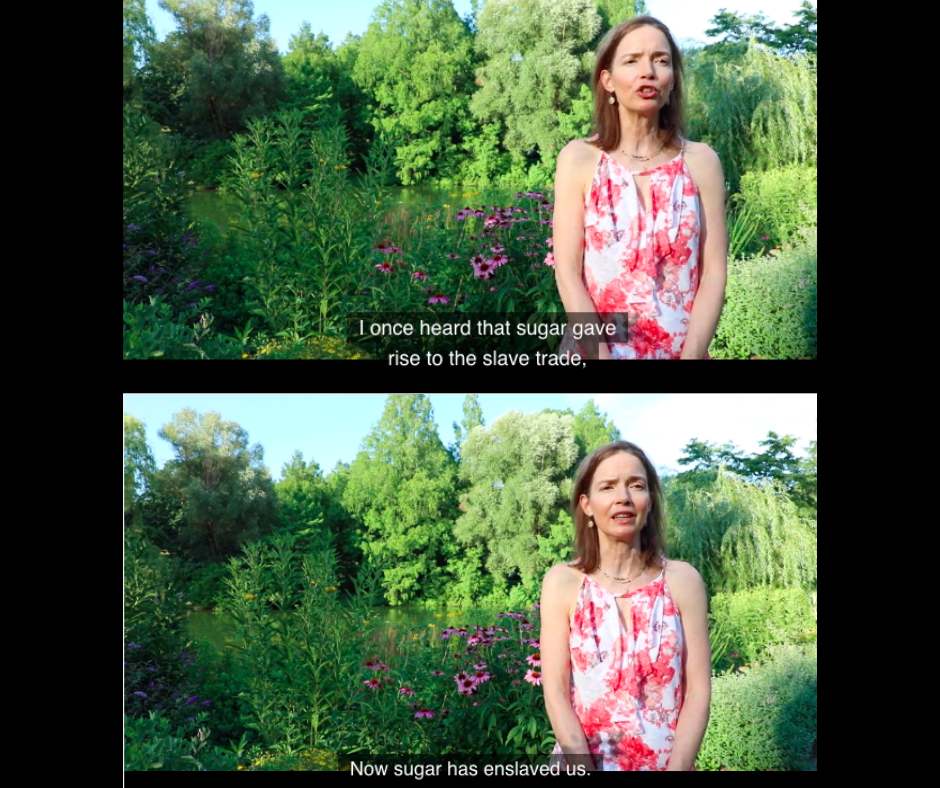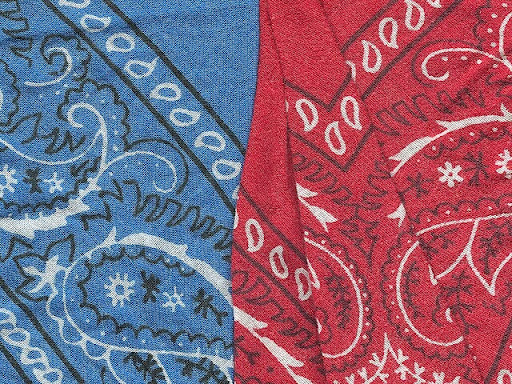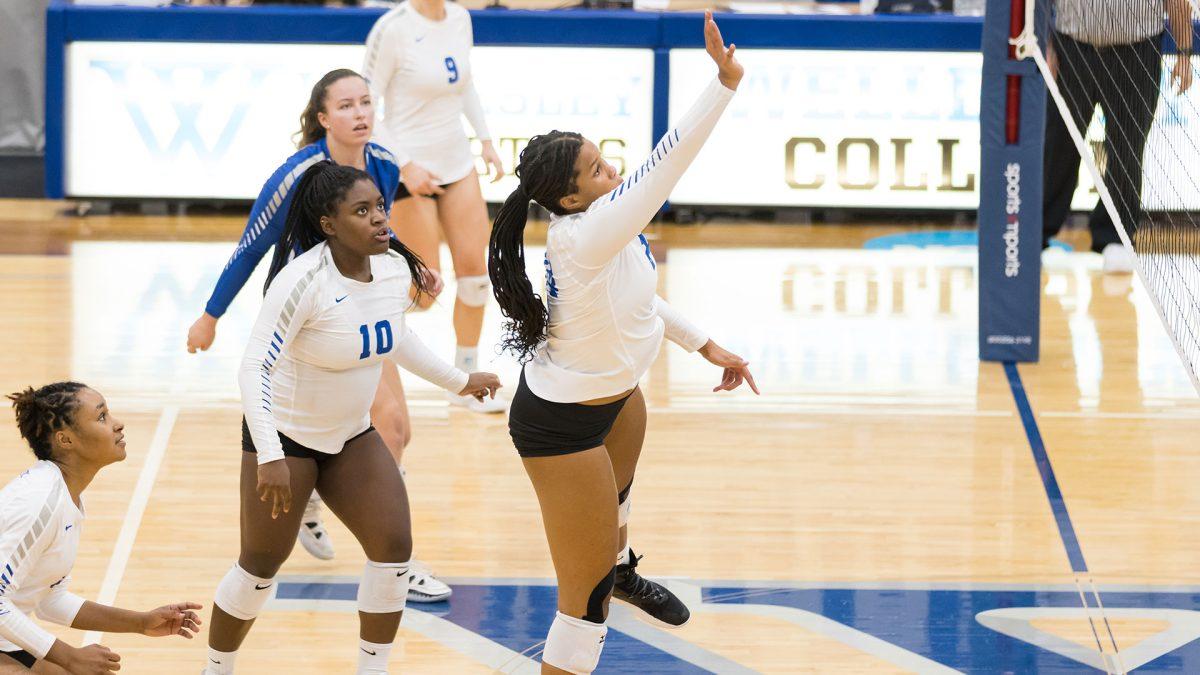On Aug. 5 Patricia Welfald, a nurse practitioner from Newton-Wellesley Hospital and Health Services, presented a Wellesley Wellness orientation video for first-years in which she compared sugar addiction to slavery. The video was posted on Wisr, a platform used for online student orientation. The quote garnered attention and backlash from Wellesley students on Twitter after screenshots of the quote were posted by Dani Pergola ’21, an orientation mentor, on Aug. 8.
“I once heard that sugar gave rise to the slave trade,” Welfald said during her presentation. “Now sugar has enslaved us.”
Student Perspectives
Simone Nevills ’21, a student who became aware of the incident through Pergola’s tweet, was not surprised by the comment in the video.
“It’s hard being a Black student at Wellesley in ways that I have a hard time articulating, compared to other schools,” Nevills said. “We don’t have a lot of support from a lot of our professors. If they’re not racist, they often don’t have the tools to deal with racism in the classroom as it comes up.”
As Nevills explained, being a Black student at Wellesley is difficult. There are relatively few Black students at the College, comprising only six to seven percent of the student population. Additionally, these students are scattered across academic disciplines and, as Nevills noted, received little administrative support.
Nevills was concerned about how the many administrators that examined, edited and approved the video allowed its posting on Wisr. She believed that approving the video was an example of the “very flippant” way administrators handle Black students’ pain and suffering.
“It’s not just a Wellesley problem, but this is a [college that] advertises itself as a place where doors are open. It’s supposed to be a really open community,” Nevills said. “You know, it’s supposed to be great, and that’s not the experience that a lot of Black students have.”
Tulani Reeves-Miller ’21, another student who saw Pergola’s screenshots, shared the same unsurprised sentiments as Nevills about Welfad’s comment.
“I know from experience that if you’re not Black, you don’t tend to focus a lot on learning our history, or learning American history through that lens,” Reeves-Miller explained. “I just feel like the person who said it didn’t think a lot about who it might affect or the actual history of slavery in America. Honestly, it was hurtful to me.”
As an orientation mentor, Pergola raised concerns about the well-being of incoming first-years reacting to the video, as it is some of the first content that they were exposed to from Wellesley.
“This is one of the first things they’re hearing from us and this is what’s establishing their expectations of what the school is going to be like,” Pergola said.
Administrative Response
Pergola reached out to the head of orientation and sent an email to Health Services about the concerning comment. In response, she received an apology from the head of Health Services, Dean Horton and Patricia Welfald.
Welfald said that her statement was inspired from The 1619 Project, a New York Times magazine series examining the legacy of slavery in America. In the email, she wrote that an article from The 1619 Project “examines the racial caste system that sugar slavery helped create,” which particularly moved her.
“By no means do I intend to equalize our modern addiction to sugar with the horrific multi-thousand year history of slavery in our world, the 400+ years of the brutal institution of slavery in North America, nor with slavery’s systemic effects gripping our nation,” Welfald wrote to Pergola. “While I am distressed in learning how this unnecessary substance called sugar has hurt the health of so many people, I am horrified in the way sugar has also been instrumental in the slavery and suffering of innumerable [B]lack people, [I]ndigenous [people], and people of color.”
In response to the individual apology, Pergola emphasized that she should not be the one to receive an apology, nor would it be meaningful.
“I was just someone who happened to notice the video and publicized it. I’m not the demographic that is hurting,” Pergola said. “I think there should be a kind of statement that is made to the general Wellesley community.”
On Aug. 11 Dr. Jennifer Schwartz, the medical director of Health Services, posted a formal apology as a discussion post on Wisr. “While certainly there was no malicious intent and no controversy intended,” Schwartz said that she recognized the inappropriate nature of the comparison, and added that she hoped Wellesley students could accept the apology for the hurt Health Services had caused.
“I will use this as a learning experience for myself and our team moving forward. We are human and we are not perfect, but we do hope to grow and improve from this mistake.” Schwartz wrote. “I hope that you all can forgive this unfortunate choice of wording and we can work to regain your trust and respect.”
Following her statement, Schwartz thanked the Wellesley student body for helping instill a sense of cultural sensitivity and awareness for the institution. After being up for six days, the video was removed from Wisr.
Feedback to Administration
After hearing about the response from Health Services, Nevills agreed that given the culture of the College, “taking the video down was the best thing, even the only thing, Health Services could do” for the specific situation.
“At the end of the day, when this stuff happens, it’s a symptom of other stuff.” Nevills said. “If they really want to prevent things like that from happening in the future, that’s a whole different conversation.”
In order to prevent future harmful incidents like this, Nevills said that the people responsible for administering and green lighting the video, and those around them, need to truly think about how they might be covertly racist and hold some biases and prejudices and commit to understanding and working on those prejudices.
Nevills is also heavily involved with Wellesley for Black Lives, a movement wherein Black students collaborated on a list of demands for the College.
“Wellesley, I and a lot of other Black students believe, needs to have a cultural reckoning and that means that administrators and professors and our classmates need to dig deep and commit to wanting to not be racist.” Nevills explained. “And we haven’t really seen that on a large scale.”
Moving forward, Welfald said that her email to Pergola will suffice as her statement and that she will not be making another public statement to students about her comment. Aside from the formal apology on Wisr, there has not been another statement from Health Services.









